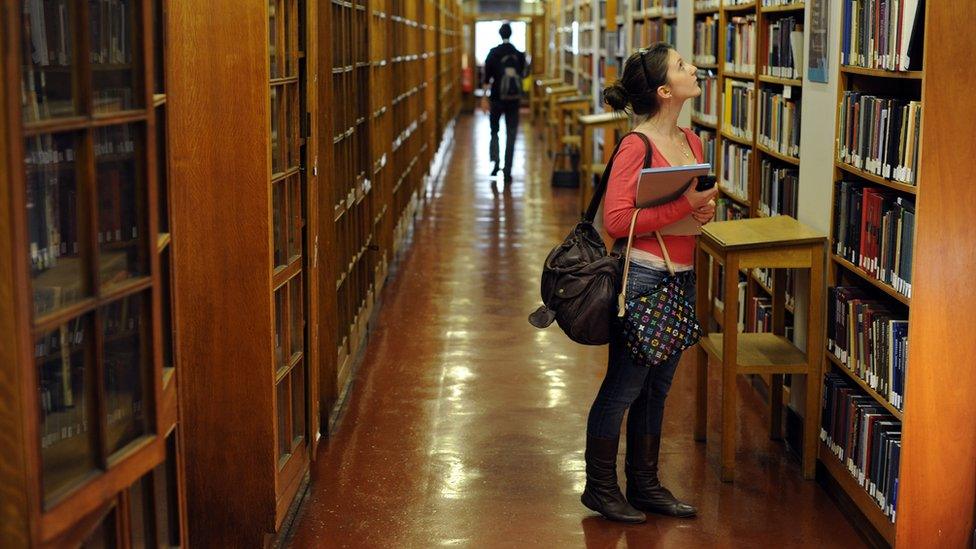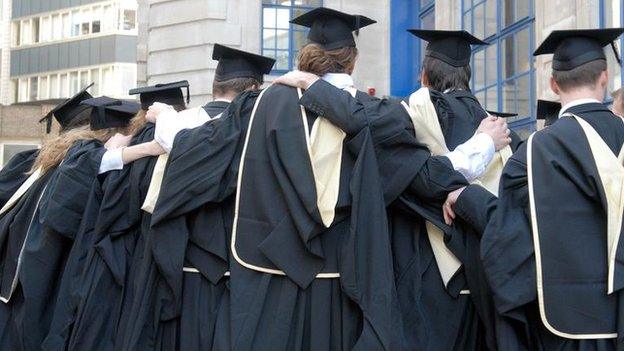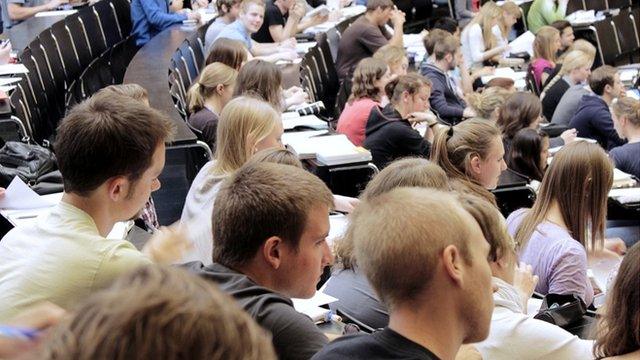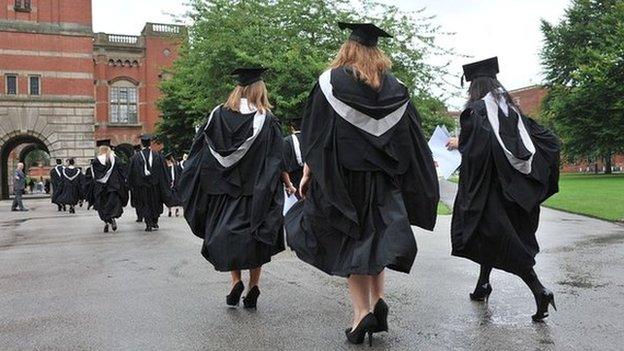Private schools extend lead in entrants to university
- Published

Universities Minister Jo Johnson says all students should be able to fulfil their promise
Private schools extended their lead over state schools in getting pupils into England's universities after higher fees were introduced, data shows.
Government figures show 85% of private school pupils went to higher education, compared with 62% of those from state schools by the age of 19 in 2013-14.
The figures for entrance to the most selective universities were even starker at 64% and 23% respectively.
Tuition fees, funded by state-sponsored loans, had just been raised to £9,000.
The figures, published by the Department for Education, reveal a drop from 66% to 62% in state school pupils progressing to university between 2012-2013 and 2013-2014.
It was part of a nine percentage point drop from 71% in state school pupils carrying on into higher education since 2009-2010, the figures showed.
But overall there were still many thousands more state school pupils going to university in 2013-14 at 212,065, than private school pupils at 24,990.
'Opportunities'
The report, Widening Participation in Higher Education: 2016, noted: "The 2013-14 cohort was the first cohort where all students were affected by the change in tuition fees in 2012-13."
Ministers have repeatedly claimed that the introduction of higher fees did not deter pupils from heading to university.
The figures were released days after maintenance grants were replaced with loans for students from poor backgrounds in England.
They replaced payments of around £3,500 with loans, which will have to be paid back at the end of an undergraduate course, once graduates are earning more than £21,000.
But the government highlighted that more disadvantaged youngsters, those on free school meals, are going on to university.
Decline
Universities Minister Jo Johnson said: "We are seeing record numbers of disadvantaged young people going to university and benefiting from the real opportunities that our world-class universities can offer.
"But, with a gap still persisting depending on a student's background, there is still more work to do to build a society that works for everyone.
"Everyone in our country should be allowed to rise as far as their talents will take them, whoever they are and wherever they're from. We will not rest until every young person in our country has the chance to fulfil their promise."
Sorana Vieru, vice president for higher education at the National Union of Students, said: "This government has continued with the coalition's rhetoric that high fees and debt have not put students off going into higher education.
"Despite research showing that students from non-selective state schools being the most likely to succeed at university, their participation rates have been in decline since 2010.
"It is clear that students from non-selective state schools are most likely to be from disadvantaged backgrounds.
"For a government that talks the talk on social mobility, it needs to seriously consider the effect its market reforms are having on higher education participation."
- Published30 January 2015

- Published9 June 2016

- Published16 May 2016
